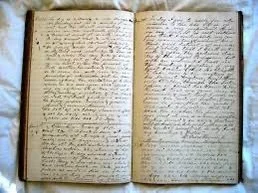I’ve written over 20 pages of my so-called diary of living at our senior retirement club. It is consuming my writing life. I’ve also been slowly reading Virginia Woolf’s diary. It’s not only energizing to follow such a gorgeous intelligence, but it’s freeing in some way. Sylvia Plath said, (this is on the back of the book) “I get courage by reading Virginia Woolf’s A WRITER’S DIARY.” There’s such expansiveness. She’s thinking through what a novel does, and can do. Look at Shakespeare, she says. The stage requires remaining on the top level of human interchange, what can be seen in the actions, what can be inferred from the speech. Even when the speech is about thoughts, still, anyone who’s seen a movie adaptation of a book knows how much remains unavailable. Woolf tries—whether she succeeds or not is your choice—to go below even the surface of the novel. There’s that sense of being underwater, in the subconscious, coming to the surface to catch hold of that reality, then under again.
Virginia Woolf’s diary.
I’m thinking about that in terms of my diary. A diary allows for the undercurrent of thought. It can be surfacy, like, “We went to the beach. I swam for an hour, came home and made spaghetti for supper.” It can be like that, but it invites so much more. It’s technically private. But of course it’s meant to be read, if no one else, at least by the writer later, who is, after time goes by, a different person, you could say.
How is it different from a journal? A diary is an anchor, an organizer of thought. A writer’s journal is usually the repository of possible writing ideas, of quotations, interesting words, scenarios, descriptions. It’s looking more outward, to what it can pull in. I would say a diary is closest in form and use to the personal essay.
Please forgive me if you aren’t a writer and don’t care a fig! I hope you’ll put up with my obsession for now.
I’m reading Virginia’s diary slowly, between other things. I am devouring books, eating them for breakfast. My mind is swirling. I’m feeling more alive after a long numb spell, the numbness of moving house, I’d say. (That’s a British expression, “moving house.”) I’m nervous about what I’m writing. “Am I wasting my time?” But no matter. I’m not a book-producing machine. I’m a writer. I’ve said to my students many times, the failures are as much a part of your work as the successes. Don’t be chicken. Fail. And fail again. You’re building your muscles. It’s a necessary part.
Quick report on the rest of our lives: I’ve sprained my shoulder in exercise class, so I’m sitting it out this week. The weather is cooling off, thank goodness, and my stopped up nose is grateful. It doesn’t appreciate leaf mold.
Marc Rothko, Untitled, from the National Gallery of Art, D.C.
I’m beginning to feel at home here, but it’s slow. Would I go back to our condo if I could? Absolutely not. It’s more interesting here. I think I was looking forward most to having dinner cooked for us every night, but turns out that’s only a small part of it. This week is Rothko in Art History class. I love Rothko. Jerry thought he didn’t, but then we were at the Tate, I think, in London, and he completely changed his mind. The exhibit included a demonstration of how Rothko layered the paint to get those depths. Also this week, three women are doing a readers’ theater presentation. Cool.
The P.S. . . .
If you hurry, you can still sign up for the online workshop I’m teaching for the International Women Writer’s Guild this Friday, day after tomorrow. Here’s the link: https://iwwg.org/event-5000165. I’ve designed it to be friendly to beginners as well as experienced writers. When it’s over, you should have a good start on something new—poem, story, whatever.



